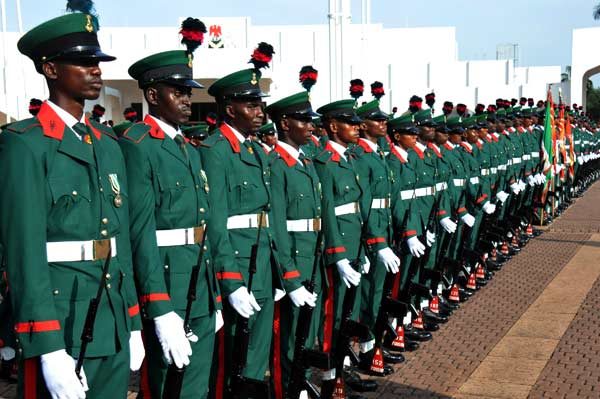It was 50 years last week, January 15, 1970 that the Biafran Forces surrendered arms and the Nigerian Civil War officially ended. The day signalled the end of a long drawn war which is often tagged as genocidal with many Eastern Nigerians mainly of Igbo extraction as the victims.
The day also marked the “No Victor, No Vanquished” declaration which Col. Yakubu Gowon made after his rival and opponent on the Biafran side, Col. Phillip Effiong surrendered. This surrender of the Biafran Forces marked the end of the Nigerian Civil War that sought to tear apart the geographic and economic unity of Nigeria.
Read more about Armed Forces Remembrance Day
However, the Nigerian government as of 1970, searched fortuitously for a day to commemorate the soldiers who fell during the Nigerian Civil War. The end of the civil war presented an opportunity to connote the very cogent date when Nigeria got united once again.
Before the war, an alternate remembrance day which was called the ‘Armed Forces Day’ in Nigeria was celebrated on November 11th of every year to coincide with the Remembrance Day for the World War II veterans who were from the nations in the British Commonwealth. It was therefore strategic and historic that the day of commemorating the soldiers who died in the Civil War was honoured on the day the peace treaty was reached.
Odumegwu Ojukwu’s deputy and Biafra’s Chief of Defence Staff, Lt. Col. Phillip Effiong, who had to bear the huge responsibility of formally surrendering Biafra to Nigerian forces after Ojukwu fled Nigeria, handed his troops over to Nigerian Armed Forces – represented by Col. Olusegun Obasanjo, at the peace treaty. The event followed an announcement over Biafran radio by Obasanjo that the war was over and Gowon himself delivered a nationwide broadcast where he summarized the war as “No Victor, No Vanquished” as a move to partly rehabilitate the survivors of the war.
Sign up to the Connect Nigeria daily newsletter
The Nigerian Civil War was fraught with different memories for the diverse actors, victims, mediators and observers. For some, it was a history of sufferance and genocide. For others, it was a tale of grief for the loved ones they lost during the needless war. While for even more of the Nigerian populace, it was a valiant move to tie together the geographic expression which Lord Frederick Lugard spuriously named in 1914.
And whether the Nigerian government does enough to assuage the anxieties of the generational remnants of the old Biafran state within the realities of a Nigeria wrought with sheer inequality, will be another topic for intellectuals and analysts to consider.
As we remember the troops who lost their lives in the Civil War, we must also never discard the memory of the victims who lost their lives and their families/friends who continue to nurse the lurking Posttraumatic stress disorder (PTSD) 50 years after the end of the Nigerian Civil War.
Source:
All Africa
Featured Image Source: Gist Candy
Got something you want to read about on our platform? Contact us: [email protected]


